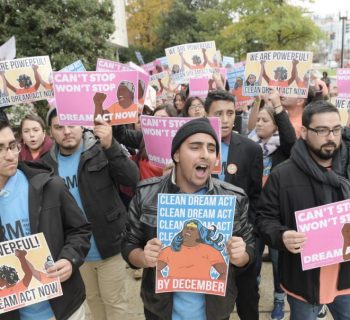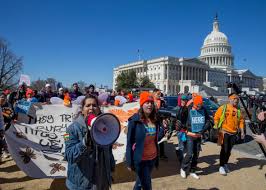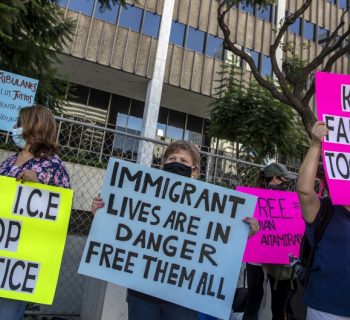The two candidates have vowed to fight government corruption and maintain the popular social programs created by AMLO: more pensions to seniors and scholarships for students.
By Mekahlo Medina | NBC Los Angeles | AUG. 31, 2023 | Photo by Ulises Ruiz
A week before the political primary season in Mexico comes to a close, the two biggest political coalitions are closer to nominating two women candidates for president.
Claudia Sheinbaum, Ph.D., is leading in the race for the dominant leftist National Regeneration Movement or MORENA party/coalition nomination. The party controls congress and the presidency. It was created and is led by popular president Andrés Manuel López Obrador, or AMLO, as he is called.
Senator Xóchitl Gálvez leads the conservative National Action Party, or PAN, party race and just received support from coalition partner PRD, Party of the Democratic Revolution. Along with the Institutional Revolutionary Party, or PRI, the coalition was created to unite against the popular MORENA party.
Both candidates have ties to the United States.
Sheinbaum was most recently head of government of Mexico City and a cabinet member of AMLO’s administration when he led Mexico City. Before politics, she was a world-renowned environmental engineer with her doctorate from the University of California, Berkeley. She also has a sister who lives in Los Angeles.
“When I asked the people, ‘Do you have relatives that live in the US?’ many, many, they raised their hands,” said Sheinbaum, who invited DACA (Deferred Action for Childhood Arrivals) students from the California-Mexico Studies Center, headquartered in Long Beach, as her guests during a political rally in Mexico City. “So, we are together.”
She has vowed to work with the U.S to help the DACA recipients gain acceptance and open travel back and forth to their home country.
Local
Get Los Angeles's latest local news on crime, entertainment, weather, schools, COVID, cost of living and more. Here's your go-to source for today's LA news.
“I think they deserve an opportunity, and I think they will be great American citizens in the future,” said Gàlvez, who also hopes DACA recipients have the ability to visit family in Mexico like she visits cousins in Los Angeles, Las Vegas and Chicago. “They will never forget their roots in Mexico... I just hope they are given the opportunities and not be separated from their families.”
The senator from the northern state of Hidalgo has rocketed to popularity in less than two months.
“I only started this race six months ago. There are polls that put me at 38 points,” said Gàlvez.
As Gàlvez's popularity soars, the current president, López Obrador, has depicted her as the candidate of a corrupt elite. In July, AMLO stepped up his political attacks by publicizing her purported business dealings, prompting her to accuse him of abuse of power.
Gàlvez, who has cousins in Los Angeles, hit back by filing a complaint with the electoral authority against AMLO, saying he was breaching impartiality rules. The authority ordered López Obrador to remain neutral and abstain from election comments. He said he would “pause” such remarks.
“I came from nowhere and have a very popular following,” Gàlvez said. “He (López Obrador) is very upset because he would like to have a candidate like me in his party.”
Mexican presidents can only serve a single, six-year term.
The two candidates have vowed to fight government corruption and maintain the popular social programs created by AMLO: more pensions to seniors and scholarships for students.
As the political parties prepare to announce their candidates based on a variation of voting and political polls, both women are keenly aware of the historic nature of their potential candidacy.
“For me, it’s a privilege,” Sheinbaum said. “I love my country. I love my nation.”
“(It’s) magnificent for Mexico. It’s something we’ve never seen in the history of this country that the two most important parties could be led by a woman,” said Gàlvez. “That practically means that the next president will be a woman and that’s something that not even the US has done.”
After the candidates are named, the general election campaign begins, with the vote set for June 2024.







